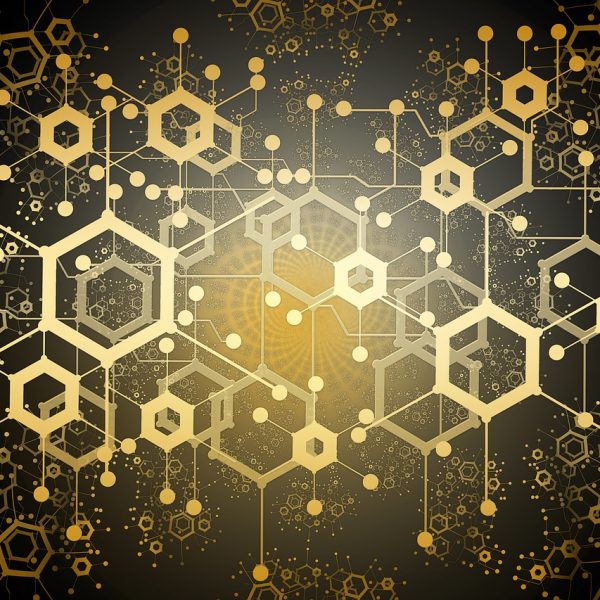NFTs (non-fungible tokens) have become one of the most talked about applications of blockchain technology. But beyond the hype and multi-million dollar art sales, how can NFTs provide real utility and value? Here is a comprehensive walkthrough of emerging and potential NFT use cases across various industries.
At its core, an NFT is a unique digital asset with ownership verified on a blockchain. This makes NFTs ideal for creating scarce digital goods and proving ownership of unique items. NFTs introduce transparency of ownership to virtual worlds.
For the uninitiated, here’s a quick primer on NFTs. Each NFT contains distinctive identification codes and metadata that differentiate it from other NFTs. The blockchain ledger permanently records transactions of each NFT for proof of ownership. NFTs cannot be exchanged equally like money (hence “non-fungible”).
This verifies the authenticity and history of each NFT. Digital files like images, videos, music, and more can be linked to NFTs. NFT ledgers also allow programming in royalties so original creators get paid when their NFTs are sold in the future.
Now let’s explore some emerging and future use cases that highlight the utility and versatility of NFTs across industries:
#1 Digital Art
Digital art NFTs have exploded in popularity recently. Iconic NFT pieces like Beeple’s $69 million “Everydays” at Christie’s auction house indicate the massive value certain rare digital art can command.
For artists, creating limited edition NFTs representing their artwork (even if infinitely reproducible) introduces scarcity. The transparent ledger also verifies authenticity and provenance while ensuring artists receive royalties upon resale.
Mike Winkelmann, aka Beeple, has raked in over $100 million from NFT art sales. But an average artist can also capitalize on NFT art through niche online marketplaces and collections. The underlying technology provides a way for digital artists to monetize work and gain recognition.
#2 Collectibles
NFTs provide a modern solution to prove ownership of unique physical or digital collectible items. Sports teams like the NBA’s Sacramento Kings are already issuing limited edition NFT collectibles representing virtual jerseys, tickets, signed memorabilia and more.
Luxury brands are jumping on NFT collectibles as well. NFTs representing one-of-a-kind sneakers, watches, or luggage can be resold without worries of counterfeiting. The blockchain ledger verifies their rarity. Even celebrities like Snoop Dogg are dropping NFT collectibles for fans.
For collectors, the transparent ledger creates a tamper-proof chain of custody. They can verify when an NFT collectible was originally minted and track subsequent sales. NFTs prevent fakes by proving authenticity and scarcity.
#3 Gaming Assets
NFTs have huge potential to power blockchain-based games where in-game assets become tradable. Players who accumulate rare and powerful NFT items like armor, vehicles, or land can resell them for profit. The ownership always remains on the blockchain.
In games like Axie Infinity and The Sandbox, NFTs tokenize in-game assets making them verifiably unique. Players have full ownership and trading abilities. Valuable NFT items earned during gameplay hold intrinsic value.
Game developers can also benefit by taking a royalty cut when players trade NFT assets peer-to-peer. And players with proven ownership of NFT items can migrate them across games and virtual worlds. NFTs enable decentralized digital economies where users reap value.
#4 Music
For music and entertainment, NFTs represent a new model of connecting artists directly with fans. Artists can release limited edition NFT songs, albums, music videos, backstage content, VIP experiences, and more exclusively for collectors and superfans.
Notable artists like The Weeknd, Eminem, Grimes, and Steve Aoki have tested out NFT music drops already. Fans purchase official NFTs to support artists while gaining bragging rights. The technology unlocks more creative monetization than just streaming royalties.
And music NFTs can evolve over time just like songs through remixes and derivatives. Artists can allow fans to “fork” the NFT to add their own contributions and share revenues. The blockchain opens new avenues for fan participation and engagement.
#5 Event Ticketing
NFTs can transform event access and ticketing by tokenizing tickets. Organizers can sell collectible NFT tickets with controllable supply. Smart contracts automate transfer rules and royalties. Fans can verify ticket authenticity and exchange them freely.
Mark Cuban’s Dallas Mavericks NBA team is an early pioneer. They sell game tickets and perks as NFTs with programmable resale rules. Future use cases could include concerts, festivals, conferences, and other events with limited capacity.
Event NFTs enable organizers to stay connected with attendees across the ticket lifecycle while capping scalpers. Attendees also benefit from provable ownership, enhanced collectibility, and higher liquidity if they can’t attend.
#6 Authentication
NFTs are ideal for authentication use cases where proving legitimate ownership is critical. Luxury brands already suffer huge losses annually to counterfeiting and grey market resellers. Using NFTs to track goods can secure revenues and reputations.
Vacheron Constantin, a luxury watchmaker, now provides an NFT certificate with each watch to confirm its authenticity forever. Consumers can instantly verify if a vintage watch is genuinely made by Vacheron based on the NFT record.
This concept extends far beyond watches. Any manufacturer can tie unique NFT identifiers to their products. Scannable NFT tags on medicine bottles, for instance, can validate their authenticity and origin across supply chains. Brand protection is a major use case.
#7 Collective Investment
NFTs open new ways for groups to collectively own assets like real estate. Property developers can tokenise ownership of holiday homes and allow NFT holders shared access rights. NFTs fractionalize ownership making high-value assets more accessible.
Platforms like RealT enable shared ownership of rental properties as NFTs. Multiple investors can buy “deed tokens” in a property to share income streams. Asset managers use smart contracts to distribute revenue proportionally based on NFT shares held.
Retail investors shut out of lucrative real estate markets can now participate through property NFTs. Costly assets become more divisible through blockchain tokenization. Portfolios can be diversified across multiple properties using NFTs.
#8 Patents and IP
NFTs are ideal for proving ownership of patents, trademarks, copyrights, and other intellectual property. Rights holders can publicly authenticate their IP ownership through blockchain registration. NFTs timestamp origination and transfers.
One straightforward application is patent registration. Patents encode key metadata like inventor names, description, claims and diagrams. This data can be incorporated into patent NFTs to irrefutably establish ownership. NFTs also enable fractionalized patent ownership.
Digital media like music, videos, and images can be registered more securely using NFT copyright tokens. The blockchain establishes creator identities and origination. NFTs make IP protection accessible to individual creators.
#9 Supply Chain Tracking
NFTs are a potent solution for transparent supply chain monitoring. Manufacturers can assign unique NFT identifiers to products. As the item moves across networks, its location and custody is updated on the immutable NFT record.
Food suppliers can track ingredients from origin through every facility and distributor before final delivery. Pharma firms can trace drugs end-to-end and verify authenticity. luxury brands can follow products until they reach authorized retailers.
Supply chain NFTs give businesses and consumers full visibility. Inventory can be tracked in real-time across global networks spanning land, sea and air. The open ledger builds accountability across supply and distribution partners.
#10 Domain Names
NFTs can transform domain name systems from centralized authorities to open blockchain-based marketplaces. Names ending in popular domains like .com and .io could be minted as tradeable NFT assets with no renewal fees.
Namebase is one pioneer enabling users to bid on blockchain domain names. Owners can park websites on their domains or resell them like virtual real estate. No single entity controls the namespace or charges arbitrary renewal fees. Domain NFTs are freely tradable.
For identity management, handles linked to domains controlled by NFTs offer new possibilities. Users can maintain persistent profiles and data storage attached to their handles as decentralized identity solutions evolve.
These 10 use cases only scratch the surface of how NFTs can create value across industries. Innovation will uncover many more applications as creators experiment with tokenizing unique assets. NFTs introduce transparency, liquidity and portability to traditionally illiquid markets.
But realizing the full promise of NFTs requires thoughtful evolution. Technical challenges around energy efficiency, usability and scalability remain. Mainstream adoption is still limited by lack of understanding of blockchain’s benefits.
Developers must prioritize designing NFT experiences focused on utility over pure speculation. Integration with traditional systems and data sources can enhance NFT applications. And sustainable energy usage is critical for managing environmental impacts.
With thoughtful implementation, NFTs have huge potential as the next stage of the internet’s evolution. By programmably binding metadata to assets, we can redefine digital property rights and commerce. NFTs pave the way for user-owned metaverse economies where value transfer is seamless.
But technology is only a tool. Delivering real change requires openness to new paradigms and bold experiments in expanding ownership and agency through NFTs. A vibrant creator economy and open metaverse may emerge if diverse groups collectively drive adoption of empowering NFT applications.




